SsangYong Korando vs Suzuki S-Cross - Differences and prices compared
Compare performance (190 HP vs 110 HP), boot space and price (27000 £ vs 21800 £ ) at a glance. Find out which car is the better choice for you – SsangYong Korando or Suzuki S-Cross?
Costs and Efficiency:
Looking at overall running costs, both models reveal some interesting differences in everyday economy.
Suzuki S-Cross has a clearly perceptible advantage in terms of price – it starts at 21800 £ , while the SsangYong Korando costs 27000 £ . That’s a price difference of around 5229 £.
Fuel consumption also shows a difference: Suzuki S-Cross manages with 5.30 L and is therefore significantly more efficient than the SsangYong Korando with 7.50 L. The difference is about 2.20 L per 100 km.
Engine and Performance:
Under the bonnet, it becomes clear which model is tuned for sportiness and which one takes the lead when you hit the accelerator.
When it comes to engine power, the SsangYong Korando has a convincingly edge – offering 190 HP compared to 110 HP. That’s roughly 80 HP more horsepower.
In terms of top speed, the SsangYong Korando performs minimal better – reaching 191 km/h, while the Suzuki S-Cross tops out at 185 km/h. The difference is around 6 km/h.
There’s also a difference in torque: SsangYong Korando pulls evident stronger with 360 Nm compared to 235 Nm. That’s about 125 Nm difference.
Space and Everyday Use:
Whether family car or daily driver – which one offers more room, flexibility and comfort?
Both vehicles offer seating for 5 people.
In curb weight, Suzuki S-Cross is a bit lighter – 1280 kg compared to 1517 kg. The difference is around 237 kg.
In terms of boot space, the SsangYong Korando offers evident more room – 551 L compared to 430 L. That’s a difference of about 121 L.
In maximum load capacity, the SsangYong Korando performs minimal better – up to 1248 L, which is about 18 L more than the Suzuki S-Cross.
When it comes to payload, SsangYong Korando a bit takes the win – 463 kg compared to 405 kg. That’s a difference of about 58 kg.
Who wins the race in the data check?
The SsangYong Korando holds a decisive overall lead in the objective data comparison.
This result only shows which model scores more points on paper – not which of the two cars feels right for you.
Costs and Consumption
View detailed analysis
Engine and Performance
View detailed analysis
Dimensions and Body
View detailed analysis
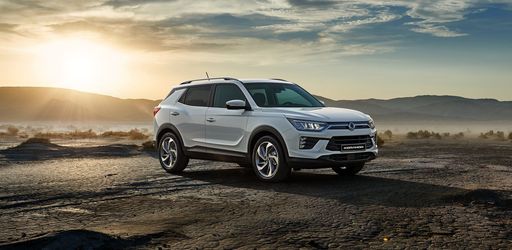
SsangYong Korando
SsangYong Korando
The SsangYong Korando pairs bold, modern styling with a surprisingly roomy and practical cabin, so it looks confident at the lights and handles the daily grind without fuss. It swaps flashy badges for honest value, offering a composed ride, useful equipment and wallet-friendly running that make it an appealing pick for buyers who'd rather spend on weekends than on extravagant finance packages.
details
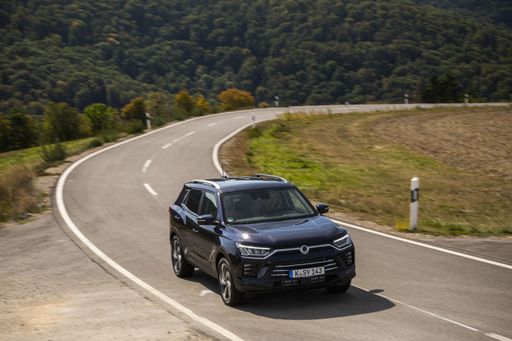
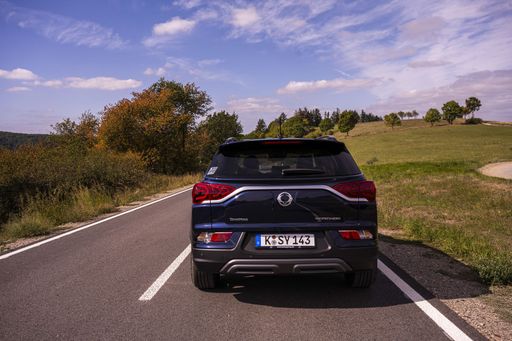
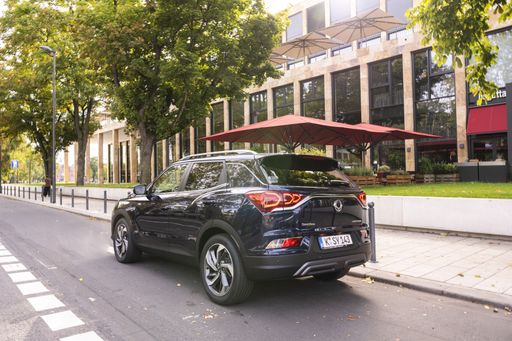
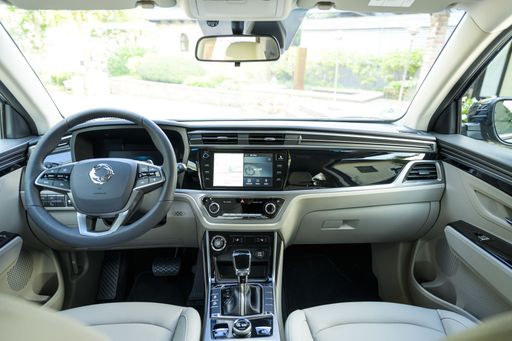
Suzuki S-Cross
The Suzuki S-Cross is a neatly packaged crossover that puts everyday practicality ahead of showy theatrics, offering a comfortable cabin and predictable handling that suit family life and weekend errands alike. It’s not a headline-grabber, but its sensible packaging, low-key charm and reputation for reliability make it a shrewd choice for buyers who prefer smart value over flash.
details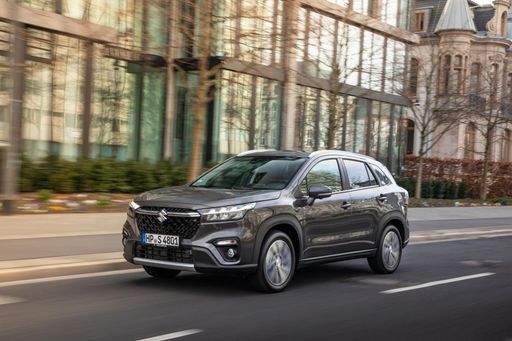
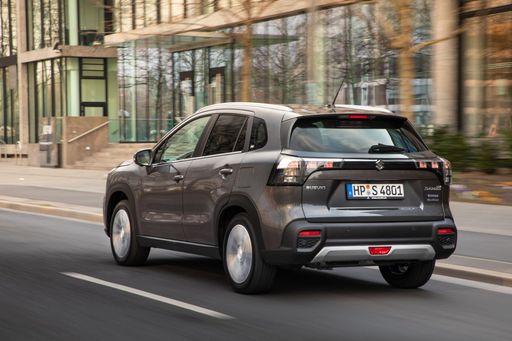
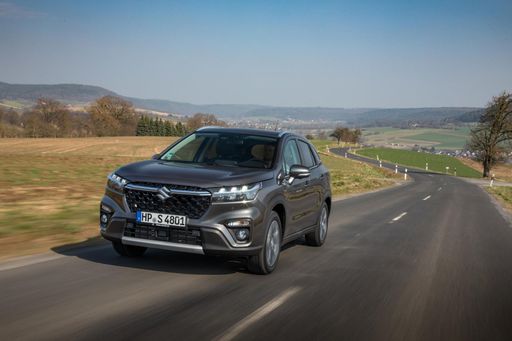
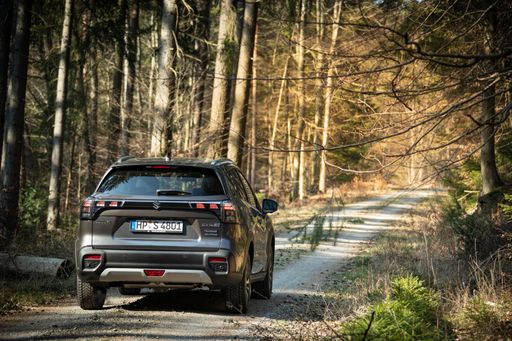
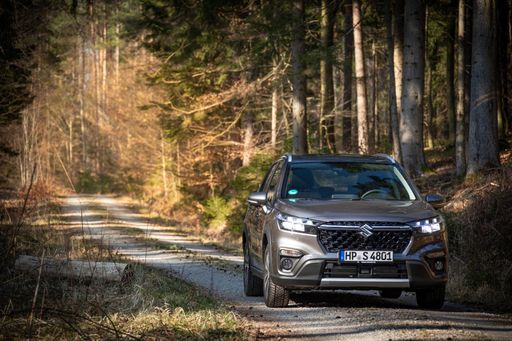
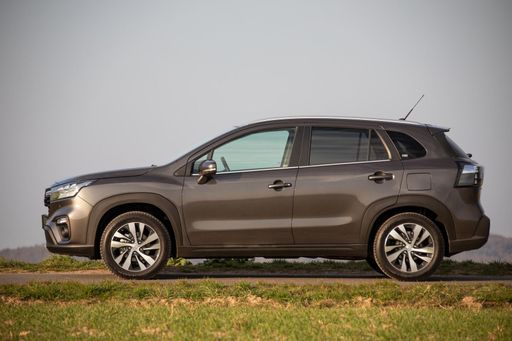
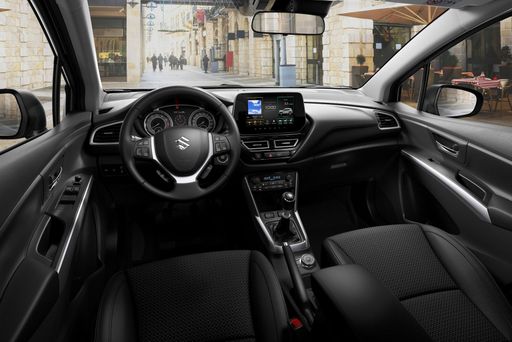
Costs and Consumption |
|
|---|---|
|
Price
27000 - 42000 £
|
Price
21800 - 34200 £
|
|
Consumption L/100km
7.5 - 8.6 L
|
Consumption L/100km
5.3 - 5.8 L
|
|
Consumption kWh/100km
16.80 kWh
|
Consumption kWh/100km
-
|
|
Electric Range
339 km
|
Electric Range
-
|
|
Battery Capacity
-
|
Battery Capacity
-
|
|
co2
0 - 197 g/km
|
co2
119 - 138 g/km
|
|
Fuel tank capacity
50 L
|
Fuel tank capacity
47 L
|
Dimensions and Body |
|
|---|---|
|
Body Type
SUV
|
Body Type
SUV
|
|
Seats
5
|
Seats
5
|
|
Doors
5
|
Doors
5
|
|
Curb weight
1517 - 1840 kg
|
Curb weight
1280 - 1385 kg
|
|
Trunk capacity
551 L
|
Trunk capacity
430 L
|
|
Length
4450 - 4465 mm
|
Length
4305 mm
|
|
Width
1870 mm
|
Width
1785 mm
|
|
Height
1620 - 1645 mm
|
Height
1580 mm
|
|
Max trunk capacity
1248 L
|
Max trunk capacity
1230 L
|
|
Payload
410 - 463 kg
|
Payload
395 - 405 kg
|
Engine and Performance |
|
|---|---|
|
Engine Type
Petrol, Electric
|
Engine Type
Petrol MHEV
|
|
Transmission
Manuel, Automatic
|
Transmission
Manuel, Automatic
|
|
Transmission Detail
Manual Gearbox, Automatic Gearbox, Reduction Gearbox
|
Transmission Detail
Manual Gearbox, Automatic Gearbox
|
|
Drive Type
Front-Wheel Drive, All-Wheel Drive
|
Drive Type
Front-Wheel Drive, All-Wheel Drive
|
|
Power HP
163 - 190 HP
|
Power HP
110 HP
|
|
Acceleration 0-100km/h
8.40 s
|
Acceleration 0-100km/h
-
|
|
Max Speed
156 - 191 km/h
|
Max Speed
180 - 185 km/h
|
|
Torque
260 - 360 Nm
|
Torque
235 Nm
|
|
Number of Cylinders
4
|
Number of Cylinders
4
|
|
Power kW
120 - 140 kW
|
Power kW
81 kW
|
|
Engine capacity
1497 cm3
|
Engine capacity
1373 cm3
|
General |
|
|---|---|
|
Model Year
2021 - 2023
|
Model Year
2025
|
|
CO2 Efficiency Class
F, G, A
|
CO2 Efficiency Class
D, E
|
|
Brand
SsangYong
|
Brand
Suzuki
|
What drive types are available for the SsangYong Korando?
Available configurations include Front-Wheel Drive or All-Wheel Drive.
